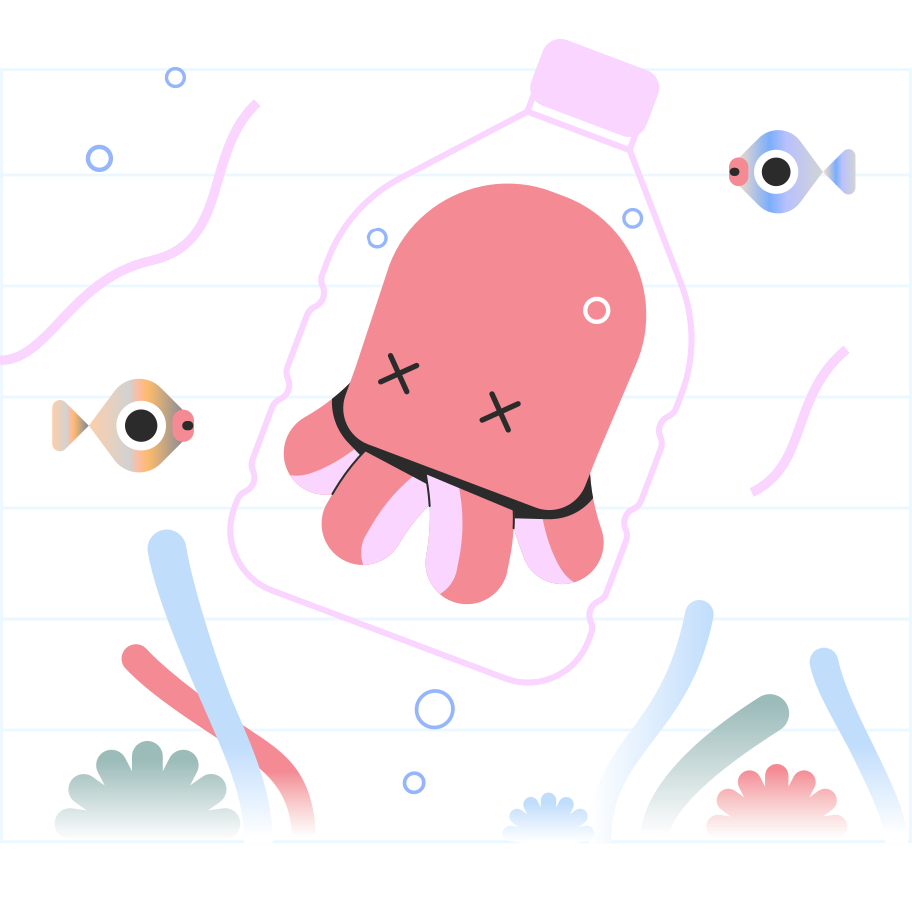[vc_row][vc_column][vc_column_text]Our environment is in crisis. In a recent meeting between Prime Minister Justin Trudeau and President Joe Biden, climate change was a top priority on the agenda. In the coming months, both countries will set new emissions reduction targets aimed at holding the rise of global temperatures below 1.5 C.
However, there are barriers to meeting this goal. In particular, the greenhouse gas emissions from plastic alone jeopardize our ability to meet this target, and the demand for plastic is not slowing down. In fact, it has doubled since 2000, with single-use plastics making up 40 percent of all plastic, the majority of which ends up in landfills.
Environmental sustainability is one of the biggest issues we will face this century. However, simply substituting single-use plastic with other single-use packaging is not the answer. We have an obligation to move away from the throwaway culture we currently live in and move towards a circular economy, in which we extend the life cycle of products as much as possible by reusing and repairing existing materials. In order to achieve this, it’s the responsibility of medium to large businesses to innovate and provide convenient, sustainable solutions for consumers. This means fundamental change for businesses—and the government needs to incentivize this behaviour.
What is sustainability?
The textbook definition of sustainability is simple: it means meeting our own needs without compromising the ability of future generations to meet their own needs.
However, “sustainability” has become a buzzword, which has led to misconceptions and misuse of the term. Misuse appears in the form of “greenwashing”, by which companies promote themselves as environmentally friendly when they are doing little to minimize their actual environmental impact. Greenwashing results in more responsibility on consumers to do research on the companies and products they use, or more dangerously, lulls them into a false sense of “doing good”.
It’s not surprising that trendy products marketed as sustainable—without truly backing up the claim—go unquestioned because, historically, consumers have had to compromise for sustainability either by paying a higher price or using a product that is less desirable. This idea that consumers have to sacrifice their standard of living in order to be sustainable feeds into the notion that consumer behaviour needs to change to achieve sustainability – when it should be the responsibility of businesses to provide sustainable solutions that do not require compromises.
What has been done
Canada is taking steps to become more sustainable, but they fall short of addressing the root of the problem. While the federal government is rolling out a nationwide ban on single-use plastics by the end of 2021, this policy isn’t enough, and will only shift the issue onto other single-use items. Another issue with the ban on single-use plastics is that it demonizes plastic specifically but does not address the root issue of throwaway culture —again lulling consumers into a false sense of doing “good”, when in fact solutions like recycling continue to come up short.
While recycling works in some capacity, it is ultimately inadequate. Canadians dispose of about 3.3 million tonnes of plastic every year, only 9% of which has been recycled. The first problem is that not everything can be recycled everywhere. It’s often only urban centres that have the facilities to recycle many everyday materials like electronics and certain types of plastic – of which there are dozens. More concerningly, many materials get recycled incorrectly because there is a lack of education around what contaminates them, resulting in many items getting rejected because they are dirty or sorted incorrectly.
We have arrived at a precipice for commerce to drive change.
What needs to happen next
While grassroots actions from consumers are important to the larger picture, businesses are the ones who will be able to make large scale change. Medium-large enterprises have the resources to allocate towards sustainable solutions and the government needs to incentivize innovation in this area. Incentives that encourage the creation of sustainable solutions, rather than simply changing the material of the product, are what will lead us to sustainability.
For businesses looking for a way to start down this road, there are bodies that have outlined ways to do this. For consumer packaged goods, companies can work towards Cradle to Cradle certification, a globally recognized measure of safer, more sustainable products made for the circular economy. B-Corp certification is an international credential that certifies a business balances profit with purpose. Acting as a guide to ensure that businesses carefully consider the impact of their decisions on workers, customers, suppliers, community, and the environment. The UN sustainable development goals are another guide for businesses looking to become more sustainable. This is a comprehensive list of 17 goals for businesses to work towards. While all 17 may not be addressable by a single business, businesses can choose which goals to prioritize to make an impact.
These changes are not going to happen overnight and we can’t expect them to. Developing circular solutions will require businesses to make fundamental changes. For example, building upon a commitment to B-corp certification, Fresh Prep has launched a reusable Zero Waste Kit to combat the pervasive use of single-use plastic packaging typically included in meal kits, overhauling operations to uphold more responsible production. This process required dedicated investment and three years of development. While larger businesses have the ability to catalyze change, small businesses don’t have the resources necessary unless there are government incentives and support throughout the process.
RELATED: 6 Sustainable Brands That Make Every Day Earth Day
It’s time to act now
Sustainability is not a trend, but a crisis that needs to be addressed now. More businesses are recognizing these shortcomings and wanting to serve a bigger purpose, while consumers are taking a greater interest in their impact on the planet and society. This is reflected by an increase in investment and financial backing in ESG (environmental, social, and governance) companies.
But it’s not the responsibility of the consumer to compromise for sustainable solutions. Businesses have a responsibility to assess where they can have a positive impact, harnessing commerce as a driver towards the widespread adoption of sustainable solutions. An old saying that has always stuck with me is: “We don’t inherit the earth from our ancestors, we borrow it from our children.”[/vc_column_text][vc_separator][vc_row_inner][vc_column_inner width=”1/4″][vc_single_image image=”23546″ img_size=”250×250″][/vc_column_inner][vc_column_inner width=”3/4″][vc_column_text]About the author: Husein Rahemtulla is the Co-Founder and COO of Fresh Prep.[/vc_column_text][/vc_column_inner][/vc_row_inner][vc_row_inner][vc_column_inner][vc_column_text][yikes-mailchimp form=”1″ title=”1″ submit=”SUBSCRIBE”][/vc_column_text][/vc_column_inner][/vc_row_inner][/vc_column][/vc_row]








